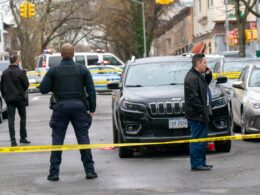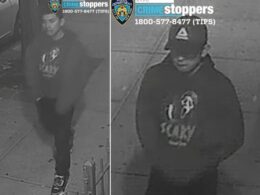There’s a reason New York’s old discovery law was called the “blindfold law.” It allowed prosecutors to withhold crucial evidence from people accused of crimes until the eve of trial — if it was shared at all. Imagine trying to make one of the most consequential decisions of your life — whether to take a deal or to fight your case and risk incarceration — without ever seeing the evidence against you.
The blindfold law enabled injustice in countless cases by allowing prosecutors to pressure defendants to plead guilty simply because they didn’t know what evidence was being held against them or what evidence may have been useful in their defense.
This was the norm in New York for decades until 2019, when we chose a different path and passed discovery reform. The 2019 reforms moved us away from wrongful convictions and unnecessary plea bargaining, toward a culture of transparency and fairness.
The truth is that these reforms were not revolutionary. We were not the first state to implement “open-file discovery”; we were one of the last. The reforms merely brought New York in line with the rest of the country and aligned our justice system more closely with our stated values.
Now, under pressure from district attorneys and law enforcement who don’t want to adjust to this new standard of accountability, Gov. Hochul is asking us to go back.
The NAACP New York State Conference stands with the many New Yorkers who refuse to.
New Yorkers like Renay Lynch, a Buffalo resident who lost 26 years of her life behind bars for a crime she did not commit. Or Derrick Hamilton, who was falsely imprisoned for 23 years due to fabricated evidence. Or Jeffrey Deskovic, who spent half his life in prison even though DNA evidence was available showing he was wrongfully accused.
Each of these New Yorkers would have had a different story to tell under the existing reforms, where the evidence that exonerated them would have been more readily available.
There are hundreds more New Yorkers like them, whose stories and the details of their ordeals are well-documented. Meanwhile, proponents of the governor’s proposal continue to fearmonger about dismissed cases without offering any real details of the cases they have in mind, hiding instead behind hypotheticals. And when they do offer real, concrete examples, they collapse under the slightest scrutiny.
But it is the story of Kalief Browder, the Bronx teen for whom the reforms were named, that should be central as these proposals are discussed.
Kalief was accused of stealing a backpack and held on Rikers Island for three years because he couldn’t afford bail and prosecutors delayed sharing evidence. He was never convicted of a crime and the charges were eventually dropped. But the trauma he endured was too much to bear and he died by suicide at age 22.
Kalief’s story is a tragedy. It is the worst possible outcome and the exact type of story that legislators often highlight to change some policy or address some issue within society. In this case, Kalief’s story demonstrated exactly what happens when a system operates in secrecy and with impunity.
The governor’s proposal that is currently being negotiated is not one that would further address the injustice that Kalief experienced, or build on the reforms, or even address some imagined loophole that is allowing the accused to escape justice. It would allow prosecutors to once again determine what evidence they think is “relevant,” opening the door to more withheld evidence and more wrongful convictions. And it would gut the enforcement mechanisms that ensure timely disclosure, letting delays pile up with no accountability.
Reform can be difficult. We all struggle with change. And of course, a system that has operated in darkness for decades will feel discomfort as it is moved into the light. But the disruption isn’t the problem — the old system was.
It has become increasingly evident that this push to reverse discovery reform is not about public safety — nor is it about justice. There is no evidence that the reforms have led to more dangerous streets or more dismissed cases. In fact, data from the state Office of Court Administration shows that serious prosecutions have not suffered. What has changed is that defense attorneys now have the basic information they need to do their jobs — and that’s what some find inconvenient.
The Legislature must reject this push for convenience because the cost of going backwards is too great to bear.
Alexander is the executive director of the NAACP New York State Conference.








